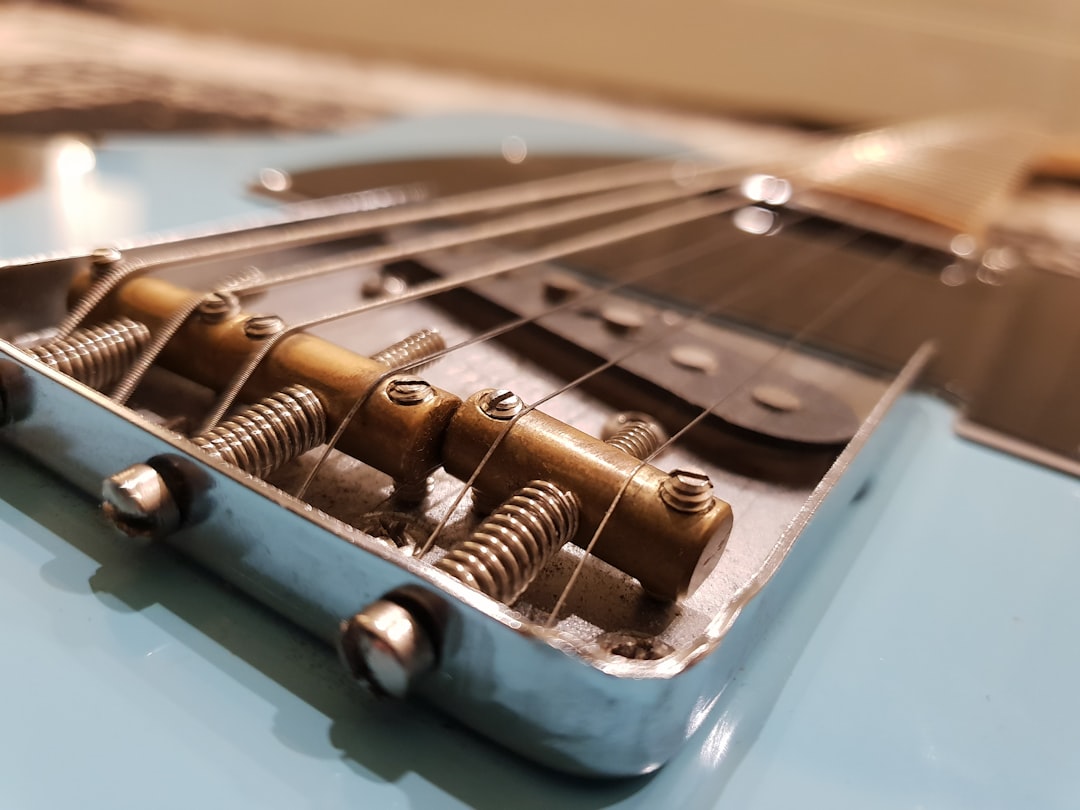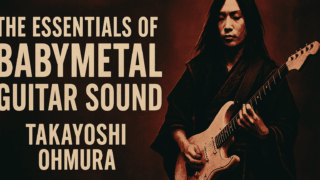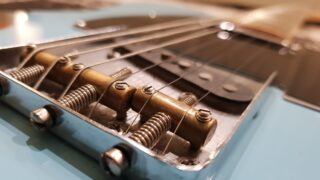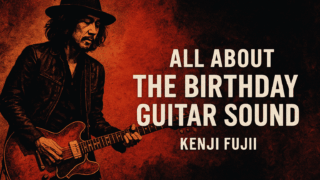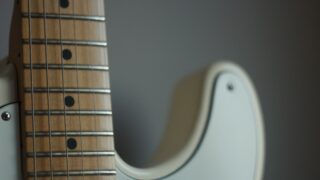Introduction (Overview of Tone)
Andy Summers is the iconic guitarist of The Police, known for his unique sound that transcended mere accompaniment. His guitar work provided a sense of space and atmosphere, complementing Sting’s vocals and Stewart Copeland’s rhythms.
In classic tracks like “Walking on the Moon,” “Message in a Bottle,” and “Every Breath You Take,” Summers utilized shimmering clean tones enriched with chorus and flanger effects. His distinct playing style, which fused reggae and jazz elements into rock, showcased sharp cutting, the use of extended chord tones, and layered spatial effects, leaving a profound impact on the music scene of the 1980s.
A significant aspect of his sound is his approach of “reducing notes and speaking through silence.” By avoiding excessive distortion and focusing on a clean tone that dominates the space, he incorporated guitar synthesizers and rack gear, expanding The Police’s sonic landscape. Summers’ sound design was minimal yet bold, often experimental in nature.
In the following sections, we will delve into the secrets behind Andy Summers’ sound design, exploring his amplifiers, guitars, effects, EQ settings, and more, enabling readers to recreate his iconic tone in their own playing.
▶ Search official YouTube videos of The Police
List of Amplifiers and Features
Amplifier selection was a crucial element in Andy Summers’ sound design. He primarily focused on achieving a clean and spacious sound, often using Fender amps while also incorporating the power of Marshall amps during live performances. His choice of amplifiers varied over time and according to the songs being performed.
During the early years of The Police (around 1978-1980), the Fender Twin Reverb (Blackface) was his main amplifier. This amp is known for its bright and clear clean tones, supporting the crisp cutting sound in early tracks like “Roxanne” and “Message in a Bottle.” Its compatibility with compressors and flangers also aligned well with Summers’ jazz and fusion background.
As live performances grew larger, he introduced the Marshall 100W Head + 4×12 Cabinet. This setup, primarily using Super Lead and Super Bass heads, ensured sufficient stage volume. Even with a clean tone processed through chorus and delay, it retained a solid core, suitable for creating The Police’s characteristic “piercing through space” sound.
The Roland JC-120 also played a significant role in his sound. Its transparent clean tone and built-in chorus contributed to the ethereal quality in tracks like “Walking on the Moon.” Additionally, studio recordings have noted the use of Music Man 212-HD 130 and Mesa/Boogie Mark IIC, with the latter being used in pairs during the “Synchronicity” era.
In terms of rack systems, Summers experimented with the Alembic F-2B Preamp and Roland SIP-300 / SPA-240, allowing for a more modular sound construction. During the 2007-08 reunion tour, he utilized a system combining Custom Audio Electronics (CAE) amps and multiple 2×12 cabinets, seeking modern stability in his sound.
Thus, while the choice of amplifiers evolved over the years, Summers consistently sought “clean, spatial, and dimensional sound.” His amplifier selection was filled with ingenuity aimed at balancing “transparency” and “live sound pressure.” Below is a summary of the amplifiers he used.
| Gear | Brand | AmazonURL | Band | Guitarist | Notes |
|---|---|---|---|---|---|
| Fender Twin Reverb (’65 Blackface) | Fender | Amazon | The Police | Andy Summers | Signature clean amp of early Police era. Bright and clear tone. |
| Marshall 100W Head + 4×12 Cabinet | Marshall | Amazon | The Police | Andy Summers | Super Lead/Super Bass series. Used for stage sound pressure. |
| Roland JC-120 | Roland | Amazon | The Police | Andy Summers | Contributed to the ethereal sound in “Walking on the Moon.” |
| Music Man 212-HD 130 | Music Man | Amazon | The Police | Andy Summers | Noted for studio use. Excellent clean and headroom. |
| Mesa/Boogie Mark IIC | Mesa/Boogie | Amazon | The Police | Andy Summers | Used in pairs during the “Synchronicity” era. Reinforces midrange thickness. |
| Alembic F-2B (Preamp) | Alembic | Amazon | The Police | Andy Summers | Used in rack setups. A preamp that recreates Fender-like tones. |
| CAE Amp + 2×12 Cabinet | Custom Audio Electronics | Amazon | The Police | Andy Summers | Used during the 2007-08 reunion tour. Modern and stable system. |
Types of Guitars Used and Features
At the core of Andy Summers’ sound are the guitars he favored. Among them, the legendary 1961/63 Fender Telecaster Custom stands out. This guitar features a Gibson PAF humbucker in the neck, along with modifications like an onboard preamp, phase switch, and brass bridge, giving it a unique character distinct from a typical Telecaster. While there are debates about whether it is a ’61 or ’63 model, this Telecaster was the main guitar supporting the clean tones in iconic songs like “Every Breath You Take” and “Message in a Bottle.”
In the early tours, Summers also used the Fender Stratocaster ’61, showcasing the bright high-end typical of Fender guitars. In the 1980s, he introduced the Roland G-303 guitar + GR-300 guitar synthesizer, creating synth-like sounds in tracks such as “Don’t Stand So Close to Me.” This experimental approach reflects his constant desire to expand the possibilities of guitar.
Additionally, he utilized a Guitarman Custom 12-string in “Synchronicity I,” adding a unique thickness to the arpeggios. For jazz phrases, he often picked up the Gibson ES-175 and ES-335, showcasing his diverse musicality. His collection also included a Gibson Les Paul (1957), Fender Esquire, and a Fender Jaguar, which he occasionally used.
Summers’ choice of guitars is characterized by his awareness of “coloring the sound according to the song.” While he primarily relied on the Telecaster, he exhibited flexibility by switching to secondary guitars based on the arrangement and song requirements. As a result, the guitar in The Police’s music served not merely as accompaniment but as a brush that altered the overall color of the songs. Below is a summary of the guitars he used.
| Gear | Brand | AmazonURL | Band | Guitarist | Type | Notes |
|---|---|---|---|---|---|---|
| 1961/63 Fender Telecaster Custom (modified) | Fender | Amazon | The Police | Andy Summers | Electric Guitar | Modified with PAF, onboard preamp, brass bridge. Used in iconic tracks. |
| Fender Stratocaster ’61 | Fender | Amazon | The Police | Andy Summers | Electric Guitar | Used in early tours. Bright and clear tones. |
| Roland G-303 + GR-300 | Roland | Amazon | The Police | Andy Summers | Guitar Synthesizer | Used in tours from 1980-84. Achieved synth-like sounds. |
| Guitarman Custom 12-string | Guitarman | Amazon | The Police | Andy Summers | 12-string Guitar | Used in “Synchronicity I.” |
| Gibson ES-335 | Gibson | Amazon | The Police | Andy Summers | Semi-Acoustic Guitar | Used for jazz-fusion approaches. |
| Gibson ES-175 | Gibson | Amazon | The Police | Andy Summers | Full Acoustic Guitar | Utilized for jazz phrases. |
| Gibson Les Paul (1957) | Gibson | Amazon | The Police | Andy Summers | Electric Guitar | Owned unit. Used for a strong rock sound. |
| Fender Esquire | Fender | Amazon | The Police | Andy Summers | Electric Guitar | Confirmed ownership and usage. |
| Fender Jaguar | Fender | Amazon | The Police | Andy Summers | Electric Guitar | Ownership confirmed. Limited usage. |
Effects and Pedalboard Setup
When discussing Andy Summers’ sound design, the mastery of effects cannot be overlooked. His tone was built on a philosophy of “clean as a foundation, colored with spatial effects,” employing a variety of tools from pedalboards to rack gear. Particularly from the late 1970s to the early 1980s, a custom board by Pete Cornish was central to his setup, incorporating renowned devices from MXR and Electro-Harmonix.
Key effects included the MXR Dyna Comp (compressor), Phase 90 (phaser), Distortion+ (distortion), and Analog Delay (delay). These effects added depth and modulation to his clean tones, significantly contributing to the arpeggios in “Message in a Bottle” and the spatial cutting in “Walking on the Moon.”
The Electro-Harmonix Electric Mistress (flanger) became synonymous with Summers’ sound, creating the unique modulation that defined his tone. This effect was crucial in achieving the ethereal sound in “Every Breath You Take” and the spaciousness in “Bring on the Night.” Additionally, the Mu-Tron III (envelope filter) emphasized funk and reggae nuances in his playing.
For delay effects, he utilized the Maestro Echoplex EP-2 as a tape echo, combining it with the Dyna Comp and Mistress to create the floating sensation in “Walking on the Moon.” In the studio, the Roland SDD-320 Dimension D was employed to achieve a spatial stereo chorus. During live performances, this was paired with Marshall amps to recreate a three-dimensional sound.
From the mid-1980s onward, rack gear became more prevalent in his setup, adding devices like the Roland SRE-555 Chorus Echo, FV-2, and DeArmond 610 Volume Pedal. The introduction of the guitar synthesizer Roland GR-300 allowed him to incorporate sounds beyond traditional guitar capabilities, achieving synth-like textures in tracks like “Don’t Stand So Close to Me.”
During the 2007-08 reunion tour, he adopted the Bob Bradshaw/CAE Switching System, integrating Moogerfooger Analog Delay, Boss Loop Station, Lexicon PCM-70, and Eventide H3000 Ultra-Harmonizer, along with Dyno-My-Piano Tri-Stereo Chorus for a modern setup. This allowed for the faithful recreation of The Police’s classic sound in live settings.
In summary, Andy Summers’ effects board evolved over time, encompassing pedals, racks, and digital gear. Each choice was made under the consistent philosophy of “adding spatial modulation to a clean sound.” Below is a summary of the effects he used.
| Gear | Brand | AmazonURL | Band | Guitarist | Effect Type | Notes |
|---|---|---|---|---|---|---|
| MXR Dyna Comp | MXR | Amazon | The Police | Andy Summers | Compressor | Part of the early Cornish board. Highlights arpeggios. |
| MXR Phase 90 | MXR | Amazon | The Police | Andy Summers | Phaser | Adds modulation to cutting tones. Used in late 70s. |
| MXR Distortion+ | MXR | Amazon | The Police | Andy Summers | Distortion | Used to complement light distortion for solos and breaks. |
| Electro-Harmonix Electric Mistress | Electro-Harmonix | Amazon | The Police | Andy Summers | Flanger | Core of his signature tone. Creates ethereal modulation. |
| Mu-Tron III | Musitronics | Amazon | The Police | Andy Summers | Auto-Wah / Envelope Filter | Expresses funk and reggae nuances. |
| Maestro Echoplex EP-2 | Maestro | Amazon | The Police | Andy Summers | Echo | Used in “Walking on the Moon.” Creates spatial effects. |
| Roland SDD-320 Dimension D | Roland | Amazon | The Police | Andy Summers | Chorus | Widely used in the studio. Creates stereo spaciousness. |
| Roland GR-300 | Roland | Amazon | The Police | Andy Summers | Guitar Synthesizer | Introduced synth-like sounds into his music. |
| Eventide H3000 Ultra-Harmonizer | Eventide | Amazon | The Police | Andy Summers | Pitch Shifter | Introduced during reunion tour. Used for spatial processing. |
| Bob Bradshaw/CAE Switching System | Custom Audio Electronics | Amazon | The Police | Andy Summers | Switching System | Used during the 2007-08 tour. Controls complex rack setups. |
Tone Settings, EQ, and Mixing Approaches
Andy Summers’ sound design is supported not only by his choice of gear but also by meticulous adjustments in EQ and mixing. His guitar sound is established by layering “transparent clean” with “modulation and depth,” a technique thoroughly applied in both live and studio settings.
Basic Amp EQ
When using Fender amps like the Twin Reverb, he typically set the treble around 5-6 and engaged the bright switch to ensure a shimmering high end. The midrange was kept relatively low (around 4), and the bass was set shallow at about 3 to prevent muddiness when playing extended chord tones. When using Marshall amps, he often kept the gain low, favoring a clean to crunch setting, where the spatial effects added depth rather than distortion.
Compressor and Dynamics
The MXR Dyna Comp was often kept on, helping to balance the volume of notes. Particularly in “Message in a Bottle,” it equalized the balance of each string, enhancing the floating quality of his chord work. Summers frequently mixed open strings into his chords, making the compressor essential for maintaining volume consistency.
Chorus/Flanger Settings
The Electric Mistress (flanger) was set to a moderate depth (around 12 o’clock) and a relatively slow rate, achieving a tone that floated in space. In the studio, he frequently used Preset 2-3 on the Roland Dimension D, adding a natural stereo feel. This setup recreated the expansive soundscape in tracks like “Walking on the Moon.”
Delay and Echo Techniques
The Maestro Echoplex EP-2 was set for short delays (around 250-350ms), with repeats limited to 1-2 to maintain clarity. In “Walking on the Moon,” it was combined with the Dyna Comp to emphasize echo while preserving the clarity of chords. During live performances, he utilized the Roland SRE-555 Chorus Echo to replicate the modulation of tape echo.
Mixing Positioning and Processing
In The Police’s tracks, the guitar is often panned significantly to one side of the stereo field. The tight rhythm of bass (Sting) and drums (Copeland) is centered, with Summers’ guitar providing “expansion” around it. Additionally, engineers typically avoided deep reverb, allowing the natural modulation from chorus and flanger to shine through, achieving a clear and punchy mix characteristic of the 80s.
Song-Specific Adjustments
– “Message in a Bottle”: Telecaster + Dyna Comp + Mistress. Adds transparency to arpeggios.
– “Walking on the Moon”: Comp + Flanger + Echoplex. Creates floating sensation with delay echoes.
– “Every Breath You Take”: Modified Telecaster used in a nearly direct clean setup, complemented by chorus for airiness. An example of maximizing transparency with minimal effects.
– “Don’t Stand So Close to Me”: Synth-like sounds from the Roland GR-300. Introduces textures impossible with traditional guitars.
PA/Engineer Considerations
Summers’ sound was often EQ’d to emphasize mid-high frequencies without becoming harsh, while tight processing was applied to the low end. The guitar’s positioning remained closer to dry, creating space with chorus rather than reverb. This allowed the guitar to fill the space without interfering with the rhythm of the three-piece band, The Police.
In conclusion, Andy Summers’ settings were not just about gear but included a holistic approach to EQ balance and overall mix design, contributing to his distinctive sound.
Affordable Alternatives to Recreate the Tone
Andy Summers’ sound design often involves vintage Telecasters and expensive rack gear, making it challenging to replicate entirely. However, with a clever combination of modern products, it’s possible to approximate his sound affordably. Here, we focus on products available for around $100 to $500.
For recreating the clean tone, affordable transistor amps like the Roland JC-22 or BOSS Katana series are effective. The JC-22 is a smaller version of the JC-120 that Summers used, featuring a built-in chorus that closely resembles his sound, suitable for home practice and small gigs. The Katana offers a wealth of built-in effects, making it easy to incorporate delay and flanger.
In terms of effects, the BOSS CE-2W (Waza Craft series) is an excellent alternative to the Electro-Harmonix Electric Mistress. Its natural and spacious chorus effect can recreate the floating sensation found in “Every Breath You Take.” Additionally, pairing it with the BOSS PH-1r or MXR Phase 90 (current model) allows for an easy recreation of the phasing effects from the “Message in a Bottle” era.
For compression, the current MXR Dyna Comp or BOSS CS-3 are strong contenders. Both help balance the volume and enhance arpeggios, making them essential for replicating Summers’ clean arpeggio sound.
For delay/echo, the BOSS DD-8 or TC Electronic Flashback 2 offer excellent cost-performance. Setting a short delay can faithfully recreate the floating sensation in “Walking on the Moon,” while using tape echo modes can bring you closer to the sound of the Echoplex EP-2.
Using a multi-effects unit is also a practical option. Compact multi-effects like the Line 6 HX Stomp or BOSS GT-1000 Core can manage chorus, compression, and delay all in one unit, enhancing reproducibility in live or home recording settings. These are ideal choices for beginners or those looking to keep costs down.
Regarding guitars, while acquiring an authentic Telecaster Custom is difficult, the Fender Vintera series or Squier Classic Vibe Telecaster can effectively capture the essence. Choosing models with humbuckers brings you closer to the feel of Summers’ modified Telecaster.
Overall, the essence of Andy Summers’ sound lies in “bright, spacious cleans + modulation,” and modern, affordable gear can adequately replicate this. Below is a summary of representative alternative gear.
| Type | Gear | Brand | AmazonURL | Band | Guitarist | Notes |
|---|---|---|---|---|---|---|
| Amplifier | JC-22 Jazz Chorus | Roland | Amazon | The Police | Andy Summers | Smaller version of the JC-120. Can recreate floating effects with built-in chorus. |
| Amplifier | Katana-50 MkII | BOSS | Amazon | The Police | Andy Summers | Can cover chorus and delay with built-in effects. |
| Compressor | MXR Dyna Comp (current) | MXR | Amazon | The Police | Andy Summers | Standard for balancing volume. Essential for arpeggio recreation. |
| Compressor | BOSS CS-3 | BOSS | Amazon | The Police | Andy Summers | Affordable and accessible. Effective as a Dyna Comp alternative. |
| Chorus | BOSS CE-2W Waza Craft | BOSS | Amazon | The Police | Andy Summers | Ideal alternative to the Electric Mistress. Natural modulation. |
| Phaser | MXR Phase 90 (current) | MXR | Amazon | The Police | Andy Summers | Can recreate 70s sounds. |
| Delay | BOSS DD-8 | BOSS | Amazon | The Police | Andy Summers | Short delay can recreate the essence of “Walking on the Moon.” |
| Delay | TC Electronic Flashback 2 | TC Electronic | Amazon | The Police | Andy Summers | Includes tape echo mode to approach the sound of the Echoplex. |
| Multi-Effects | Line 6 HX Stomp | Line 6 | Amazon | The Police | Andy Summers | Compact yet versatile for sound creation. Ideal for beginners. |
| Guitar | Squier Classic Vibe Telecaster | Squier/Fender | Amazon | The Police | Andy Summers | Can effectively capture the essence of a Telecaster at an affordable price. |
Summary and Conclusion
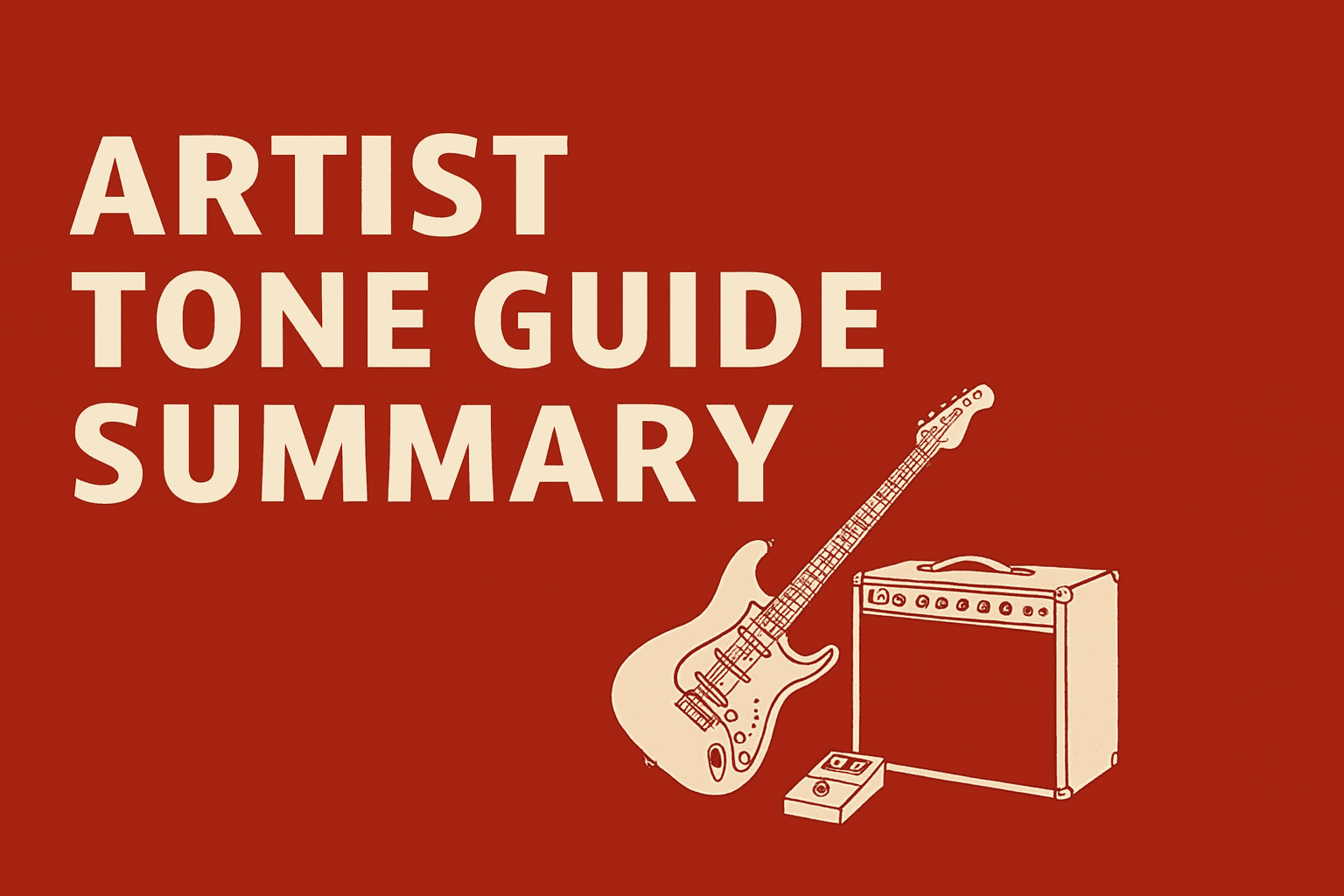
Reflecting on Andy Summers’ sound design reveals that its essence lies in “constructing a unique world based on simple clean tones and spatial effects.” The Police, despite being a three-piece band, exuded an overwhelming presence largely due to Summers’ guitar, which filled the sonic space. His sound bridged the gaps between Sting’s melodies and Copeland’s rhythms, providing both depth and dimensionality to the music.
The standout feature is the 1961/63 Fender Telecaster Custom (modified), which produced a bright clean tone. The sound created by the onboard preamp and PAF offered a unique range not found in traditional Telecasters, and when combined with the Dyna Comp and Electric Mistress, it achieved the ethereal tones exemplified in “Every Breath You Take” and “Message in a Bottle.” This combination is undoubtedly Summers’ signature.
Moreover, his sound design was experimental, actively incorporating devices like the Roland GR-300 guitar synthesizer, Mesa/Boogie Mark IIC, rack-mounted chorus, and harmonizers, expanding traditional guitar expression. Yet, he consistently adhered to a philosophy of “not overly distorting” and “maintaining clarity,” which is why his sound continues to be celebrated across generations.
For modern guitarists seeking to approximate his sound, the key lies not in the expense or rarity of gear but in the concept of utilizing space within the sound. By not overplaying and layering spatial effects over single chords or phrases, one can maintain a balance within the music. In fact, it is entirely possible to achieve “Summers-like floating sensations” using commercially available products from brands like BOSS and Roland. The crucial factors are the playing style and how effects are combined.
The essence of Andy Summers’ sound is about “creating vast sonic spaces with minimal notes.” Replicating his sound involves not just copying gear but learning the “art of subtraction,” allowing music to breathe and enhancing the entire band’s performance. This insight will serve as a significant hint for guitarists wishing to experience the sound of The Police.

